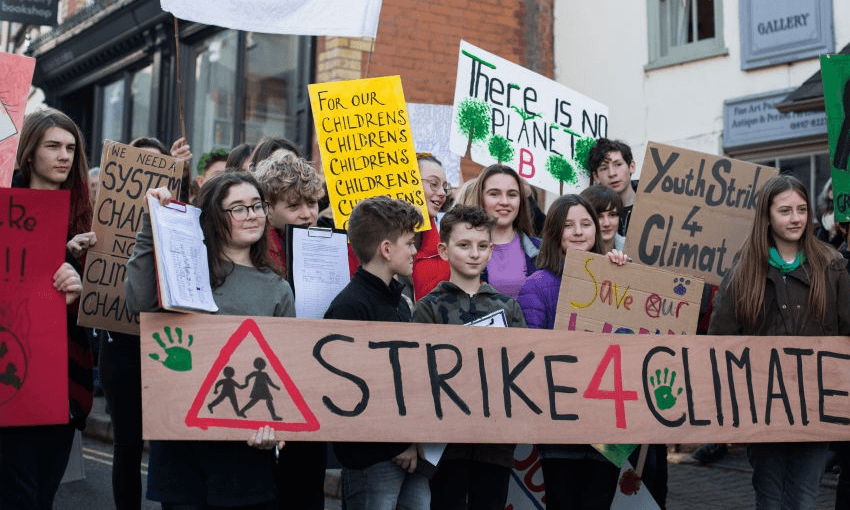We should be proud young people in New Zealand have the courage to demonstrate their commitment to addressing climate change, and welcome their passion, writes the children’s commissioner, Andrew Becroft
The children and young people taking part in Friday’s climate strike are not adults-in-waiting whose views don’t yet count. They don’t need adult permission to have a mind of their own or to give it voice.
But more than that. By making their views known, and by inviting us all to take the reality of climate change a lot more seriously, these young people are doing the rest of us a welcome favour.
That children and young people have their own views shouldn’t surprise us. Neither should their desire to share them with the rest of us. Article 12 of the Children’s Convention underscores children and young people’s right to have a say about issues that affect them. Those taking part in Friday’s rallies around the country are making it clear that climate change is at the top of that list.
Some of the most common issues my Office hears about from children and young people are housing/poverty, care for the environment and climate change. They also tell us they are frustrated at not being listened to or taken seriously.
It’s one thing to speak your mind. It’s another thing to be heard. In our recent engagement with 6,000 young New Zealanders, children and young people told us they feel adults often don’t listen to them. For some young people, not being listened to means not having a say in what happens to them. And that can be one of the things that get in the way of having a good life. Let’s be clear. Both the students who are choosing to strike and those who are choosing not to have a right to have their viewpoint heard.
Young people also told us about the frustration of not having the power to change things. When you can’t vote, and the change you want isn’t happening fast enough, you are forced to look for other ways to make your point.
Sparked by a global movement of children and young people who care deeply about their world, the marches and rallies on March 15 are the result of a student-led force that has been building momentum for seven months. It’s a defining issue for these young people. They know that climate change will impact their future.
They urgently want to make their concern heard, and heard now. But they have neither access to the ballot box nor a place of privilege or power. And they stand in constant danger of being patronised by an establishment telling them to focus on things it thinks really matter.
We should be proud young people in New Zealand have the courage to demonstrate their commitment to addressing climate change. We should welcome their passion and insistence that they are heard. Let’s hope that we, and our politicians, have the wisdom to listen to what they have to say.

